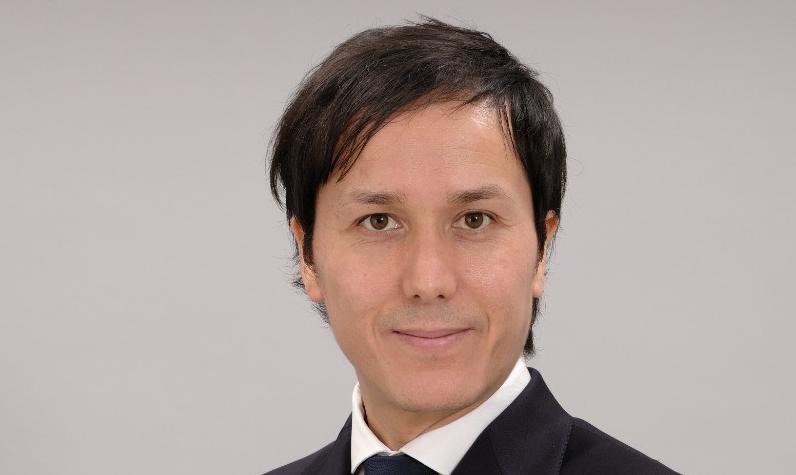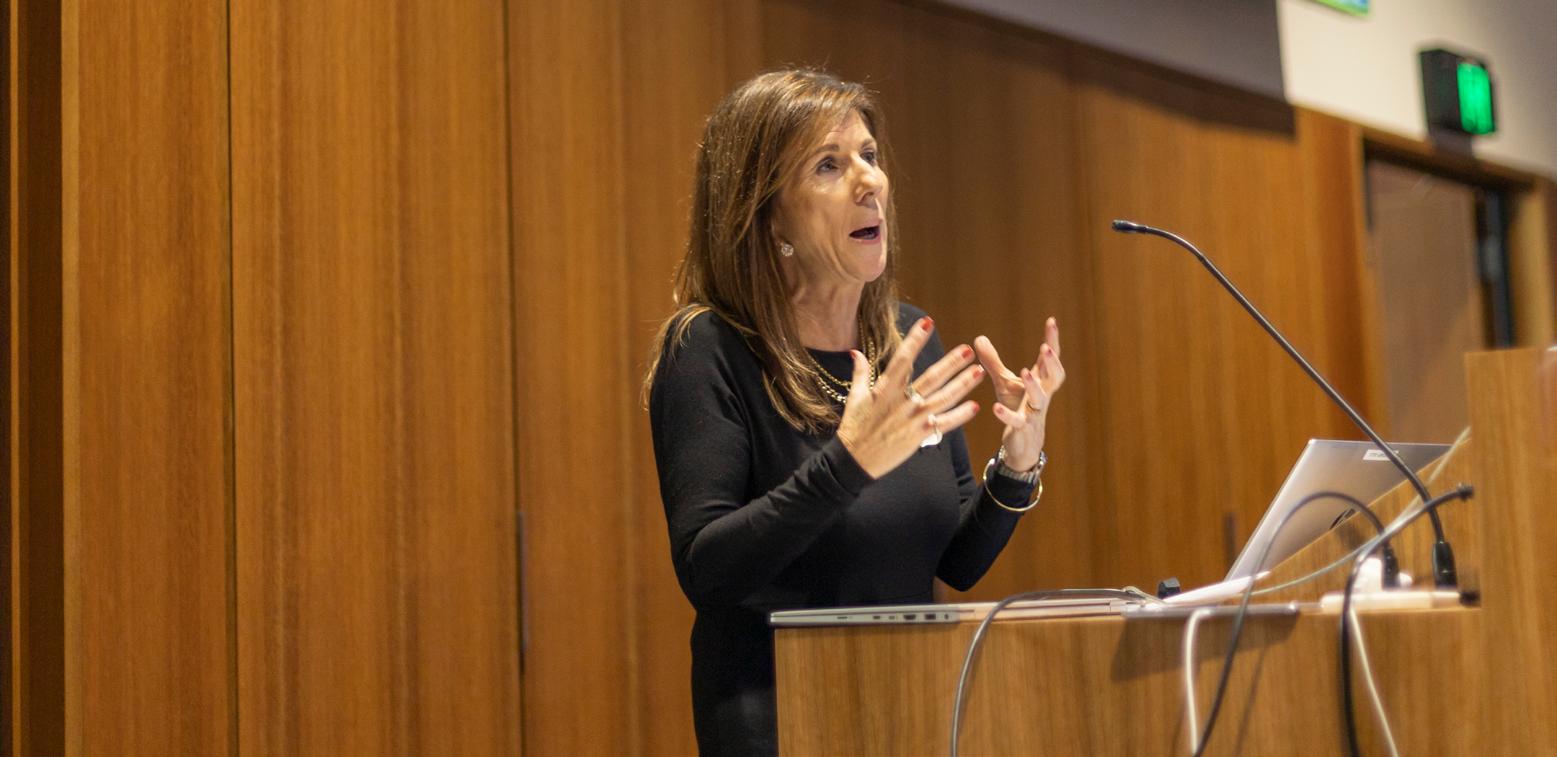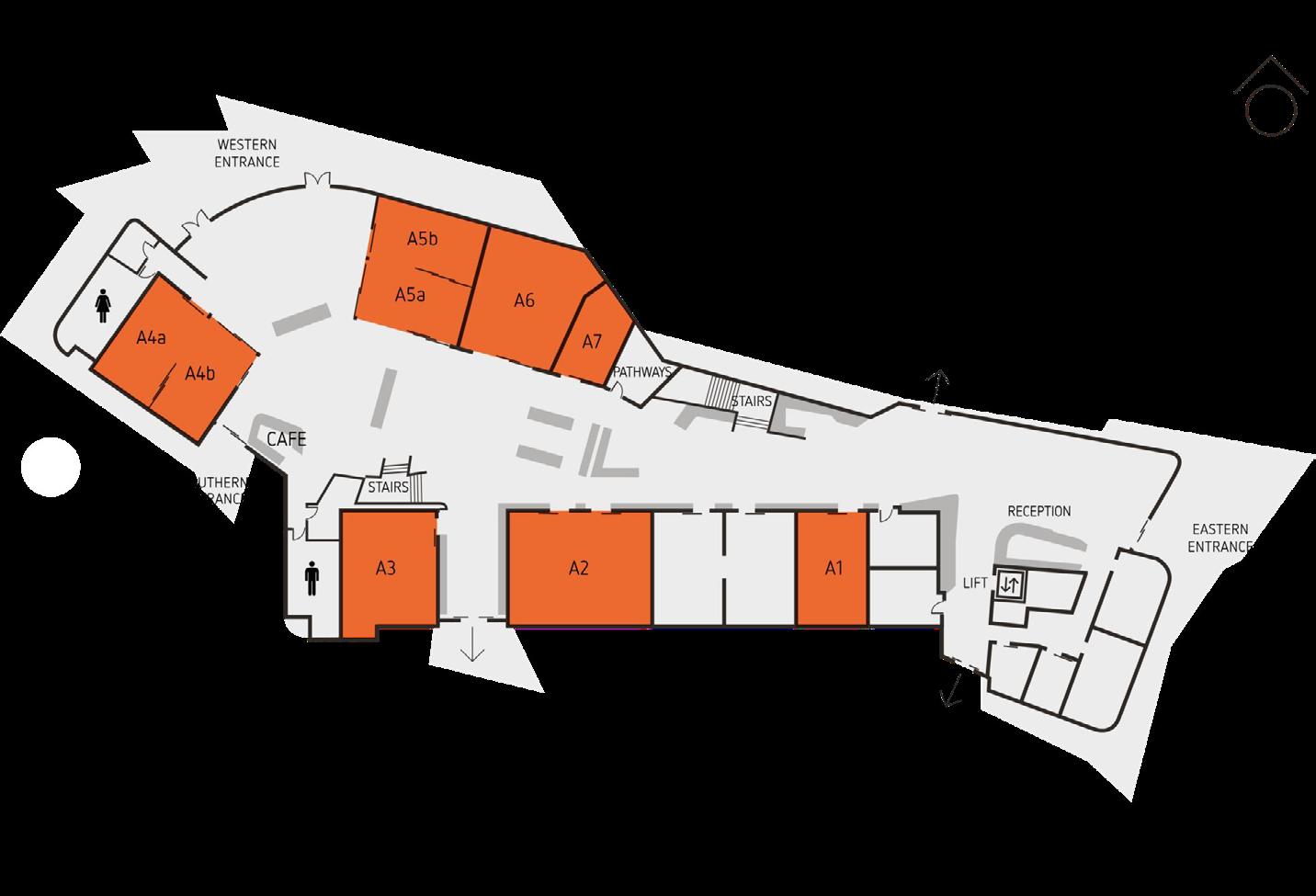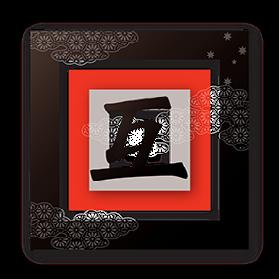
Saturday May 25th
8.45am-5.30pm
Margarent Ames Centre, Immanuel College, Novar Gardens
All conference queries: conference@jltasa.asn.au




Saturday May 25th
8.45am-5.30pm
Margarent Ames Centre, Immanuel College, Novar Gardens
All conference queries: conference@jltasa.asn.au


うちゅうで遊ぼう!
AIを用いてプレイする
Wifi:
Network: Conference
Conference Resources:
Ryuichi Dunphy
Dr Nick Jackson


The program will be finalised and available digitally on the day for session times and locations. Please print your own program if desired.

Registration Opens
Keynote 1
Welcome + Conference Opening
Morning Tea
Workshop Block 1 (45 分 )
Workshop Block 2 (45 分 )
Lunch
Admin + Keynote 2
Workshop Block 3 (45 分 )
Workshop Block 4 (30 分 )
Celebratory Drinks and Nibbles (Foyer)

Primary Middle High
All Presenting via Zoom Workshop will be conducted in Japanese

Ryuichi will discuss how learning languages has not only expanded his career horizons but also enriched his overall life experience. Keeping up with his Japanese skills after moving to Australia didn't just allow him to study and work in Japan; it laid the foundation for learning additional languages and adapting to new cultures, leading him to live in seven countries to date. This global adventure has expanded his career as a space engineer, which now extends across Japan, Australia, and Europe. He will also present the latest innovations in the Japanese space industry, with a focus on gaming and entertainment, where Japanese companies are exploring ways to “play” in space.

Ryuichi Dunphy was born in Tokyo, Japan, to an Australian parent and a Japanese parent. He and his family moved to Adelaide when he was 10 years old, where he grew up in an English and Japanese speaking environment. After completing primary school, he attended Glenunga International High School, opting to learn Chinese as a second language. Pursuing higher education, he relocated to Brisbane to attend the University of Queensland, where he studied mechanical and space engineering. Ryuichi spent several years working in the mining industry as a mechanical engineer before moving to the Netherlands to pursue a Master's Degree in Aerospace Engineering at the Delft University of Technology. Following his graduation, he gained professional experience in Germany, Portugal, and Japan. He currently resides in Belgium, working as an aerospace engineer on satellite projects, and also serving as a business and policy advisor to various start-ups and government entities in Japan.


In this workshop, you will learn how to create a unit of work with a short story or fable and learn how to break it down by using the visual listening approach. You will discover different output options and look at different classroom activities that can be integrated with this method with the objective being to set up a library of ready-made digitised visual stories. We will consider curriculum assessment requirements and ways of integrating this approach to your current teaching courses either as an add-on or stand-alone program.
Olimpia is a multi-linguist, writer, public speaker and languages teacher and has been the Head of the Languages Faculty of several secondary schools in Melbourne's southeast. She is currently pursuing Doctoral Studies and furthering research on viewing and fluency in modern language learning using fables, myths & stories. Olimpia is developing an approach called “Visual Verse Language Learning”. Drawing on comprehensible input as an instructional technique, this method is underpinned by dual coding and multimedia theories.
This workshop introduces you to kinaesthetic learning using Taiko. Kiyomi used Taiko in various situations and helped students enjoy Japanese from different perspectives. While teaching in a mining town, Taiko helped her classroom control and generate cultural interests. Contents of presentation includes: How to learn Japanese syllables and intonations; Taiko as props and classroom management; Taiko as a focus for distracted students; Taiko as a reward; Taiko Group at your school (extra curricula). *The workshop includes loud sounds, physical movement and chanting. The presentation is in Japanese and English.
Kiyomi is a primary trained teacher, who runs EZ Japanese, teaching Taiko all over Australia now. She has taught both primary and secondary students, and has experience teaching in remote area schools.
Students of all year levels love to play games. Rachel will share some game and activity ideas she uses in her Japanese classroom. The games are designed to encourage students to use spoken Japanese in a non-threatening teaching environment. Teaching grammar can be made fun through games! Rachel will introduce you to a variety of fun, educational and competitive game ideas that can be adopted for both Middle School and Senior School classes.
Rachel has taught Japanese for 30 years in both Adelaide and Melbourne Schools. Rachel's passion for Japanese started as a student at Immanuel College. Rachel initiated the accelerated model adopted by many schools in South Australia. Rachel understands the importance of a creating a learning environment in schools that not only fosters enjoyment but one that drives success. Rachel is a committee member of the JLTASA and is a strong advocate for language learning in SA..

So you've got that class, where engagement is low and behaviour is high? I will share some activity ideas and strategies that I used last year that helped me engage That Class. So, you've got that class!
Kelly BurfordKelly Burford teaches Years 7-9 Japanese (and Spanish!) at Seaford Secondary College. She discovered TPRS and CI as ways of engaging challenging students, working less and enjoying teaching more. TPRS and CI strategies focus on using repetitive and interesting language input in a way that is understood by students and supports all learners. She has adapted the philosophies and practices to apply in a Japanese classroom and is keen to share her journey.
Monique Francis, Kathryn Tominaga
Heard about 'CI'(Comprehensible Input) but not sure where to start? Trying a new approach to teaching languages can be daunting. This workshop will demonstrate several activities that can be integrated into an existing program and allow teacher and students to dip their toes into providing rich Comprehensible Input in the Japanese language classroom. Using the principles of Teaching Proficiency through Reading and Storytelling (TPRS), we will explore the dynamic use of Movie Talk and Picture Talk to provide rich input for all proficiency levels. This hands-on session will equip teachers with practical strategies to enliven their classrooms and foster a vibrant and enjoyable language acquisition environment.
Monique has been teaching Japanese at primary and secondary levels since 1997. Her light bulb moment came in 2017 when she first experienced Comprehension-based Communicative Language Teaching and Dr Terry Waltz's Cold Character Reading approach as a student and was immediately hooked. As a self-confessed book worm, Monique is passionate about the power of reading and empowering beginner readers. She writes and self publishes easy to read mini graded readers through her online bookstore JapanEasyReads.
Kathryn is a primary school teacher of Japanese with over 15 years teaching experience and over 40 years of life experience in the Japanese language. She strives to facilitate language acquisition in students that withstands the test of short lessons and extended holidays. Comprehension-based Communicative Language Teaching has been transformative in Kathryn’s classroom and contributed greatly to the teacher and student experience of autonomy, competence and relatedness in the Languages classroom.
Let's play SUGOROKU!
中 高和 Himiko Negishi-Wood and Hiroko Langdon (JPF Sydney) 1F
Board games are a useful tool when planning a stimulating classroom activity. Students can increase their cultural knowledge through the games while also expanding their creativity and communication skills in a fun learning environment. In this workshop, participants will experience board games created by The Japan Foundation, Sydney and explore how to use them effectively in the classroom.
Presenter profiles appear on pages 17 and 19.

We know that reading is a tremendously powerful tool in the acquisition of any language and yet, for many of our students, the Japanese script may feel like an insurmountable barrier. By teaching reading in context, through stories, that reflect the rich comprehensible input we provide aurally, we demystify the Japanese script, rendering it accessible to every student. Our focus is on cultivating a profound understanding of the language, allowing students to read for meaning rather than grappling with character decoding. This presentation is a comprehensive exploration of a range of reading materials, accompanied by practical insights on optimising their use. Uncover how this approach not only breaks down barriers but also nurtures the development of adept Japanese readers, fostering a deeper connection with the language 小中
c.f. presenter profiles on previous page
Do you feel overwhelmed when you see a long list of kanji? Join Natalie Hamilton as she explains how to take the guesswork out of memorizing kanji on readings. Gain an overview of the four main types of kanji and the three kanji “codes” that can take you from kanji overwhelmed to kanji expert. You will learn about the link between hiragana and kanji, and how radicals and phonetics combine to provide big hints to the meaning and sound of kanji. Return to the classroom with renewed enthusiasm to teach kanji to your students.
Natalie Hamilton is passionate about helping students understand the kanji system and overcoming 'kanji overwhelm'. She studied Japanese in Sydney from Year 7-10, and taught English in Japan for three years on the JET Programme. She holds a Master of Translation from Macquarie University, is a NAATI Certified Japanese translator and has a Master of Teaching from the University of New South Wales. Her book, The Kanji Code, has been an Amazon bestseller on four continents and her kanji-focused website has been viewed by more than 27,000 visitors around the world since its launch in 2019.
Use it or Lose it all! A novel way to use Japanese in the classroom and increase your students' use as well
Want to increase your use of Japanese in the classroom, along with your students’ use? Want to elevate your students' interest in and knowledge of Japan and Japanese culture? Participate in this practical session using trivia quizzes as a means of interacting in Japanese. In this welcoming, safe environment, work individually and in teams to participate (in Japanese) in trivia quizzes about Japan. This session will demonstrate how this method of 'using' Japanese improves engagement, participation and use of the target language. The trivia quiz PowerPoints will be made available to participants.
Anne de Kretser is the Director of the Monash Japanese Language Education Centre (MJLEC) located at Monash University, Clayton.
Please refer to her full profile on page 20 to read more about Anne and her achievements.

小 Belinda Schmitt
Looking for some new ways to engage your younger Japanese language learners? Belinda will share some fun and engaging ways to capture the attention and imagination of your younger students. Get ready to sing, play and go on an adventure with Schmitt Sensei and gain some new ideas and ways of sharing the Japanese language and culture with children in the early years.
Belinda is a passionate and enthusiastic Japanese language teacher, who strives to make language learning fun, engaging and authentic. Belinda teaches children from ELC to Year 6 and enjoys engaging her students in language learning through songs, games, and hands-on activities. One of Belinda's passions is designing and creating fun and exciting resources for the Japanese language classroom and she's always on the hunt for new ways to immerse her students in the beautiful Japanese language and culture.
In this session, Angela will demonstrate various simple class games that she utilises to support the collaborative practice of grammar and vocabulary, and why she uses different games. She will also demonstrate a few ideas for brain breaks that have been very successful with students and at the end of the session will host a collaborative discussion on other ideas for games/breaks to create a shared resource for future use.
Angela has been a Japanese teacher for nine years and enjoys gamification in teaching and is always exploring new ways to add to her teaching repertoire. She is currently the Languages Leader at Seaview High School.
Join Justin Putland as he explores innovative approaches to Japanese language instruction at the South Australian Japanese Language Teachers Association conference. Drawing on their background in education, Asian studies, and digital learning, Justin will showcase how AI-powered tools, online educational games, and platforms like Education Perfect can transform language learning experiences. Explore the intersection of technology and education, and discover practical strategies to enhance your Japanese language classroom. Don't miss this opportunity to gain insights into the future of language education.
Justin Putland is an experienced educator specialising in Japanese language and culture. With qualifications including a BA in Asian Studies and Graduate Diplomas in Education and Conflict Management, as well as a Graduate Certificate in Education Studies (Digital Learning), he is passionate about integrating technology into language instruction. He looks forward to sharing insights on leveraging technology for language instruction at the JLTASA conference.
This workshop introduces traditional Japanese games and toys popular among children, visually captivating and engaging even for observers. Designed to captivate and educate, this interactive session fosters cultural appreciation through play, empowering students to connect with Japan's heritage in an exciting, immersive manner.
c.f. page 17 for presenter profile.

The following refreshements are included in your conference ticket:
- tea and coffee available throughout the day
- morning tea
- assorted sandwiches/soup for lunch
- 'cocktail reception' drinks + nibbles at the end of the conference
*Make sure to note any dietary requirements when registering.
A coffee van will be onsite for you to purchase from in the morning.


Come and swap your いらないもの for たからもの! No money required!
Bring resources that you are no longer using to either give away for free on a first come, first served basis OR swap with other teachers.
There will be post-it notes for you to write your name and any extra information you wish to pass on about the resources.
Leftover goods must be taken back by the teacher who brought them.


Generative AI(GAI) opens up a world of possibilities. In this keynote, we will explore the exciting potential to revolutionise language and cultural learning, making it more playful, engaging, and effective. We will examine what GAI is, how it can be used to create magical learning experiences, provide immersive and interactive experiences, and offer students immediate feedback and support.
We will also discuss the challenges and considerations of using GAI in the classroom, and explore best practices for integrating AI tools into a wellrounded Japanese language learning curriculum.
By the end of this keynote, you will be equipped with a strong understanding of how AI can and will change education, enthusing you with ideas and information to create a learning environment that is both fun and effective for your students.

Dr Nicholas Jackson has worked for over 20 years in education at universities and in schools. He has a passion for researching and working with teachers, students and technology. He focuses on learners being empowered to access education in the ways that they choose and have doors open to create new pathways into learning enhanced by technology. His specialties include pedagogy, educational technology, A.I. in education, e-learning, teaching, learning, online learning, coaching, training, empowering learners, communities of practice, ICT, computing, digital technologies, design thinking, critical & creative thinking and all manner of digital innovation.


In this hands-on workshop, we will dive into the practical applications of GAI for Japanese language and cultural instruction. Get ready to experiment with cutting-edge AI tools and explore how they can be used to enhance your teaching practice, create engaging activities, and personalised learning experiences. You will leave this workshop equipped with actionable strategies for integrating GAI into your classroom ideas and resources, empowering you to create a truly transformative learning environment for your students.
Not sure how to motivate your students to learn kanji? In this practical workshop you get to be the student as Natalie Hamilton takes you under the hood of kanji characters. You will learn a number of kanji radicals and phonetic components, and learn how to make educated guesses about the meaning and readings of unknown kanji. You too will start to “see the sounds” of written Japanese as you build connections across the three scripts of hiragana, katakana and kanji. Gain confidence with this ancient and fascinating script and take some new ideas back to your students.
c.f. presenter bio on page 10.
Do you have some ‘meh’ students in your class? Or someone who is timid and does not actively participate? Are you looking for a new way of giving students ‘purpose’ of what they learn in class? This session will explore ways that cross-age activities and play can be utilised in our language classes. The examples are from Japanese classes at primary schools; however, the approaches presented are also relevant for middle schools.
Junko Nichols has taught Japanese and English as a Foreign Language at pre-school, pre-primary, primary, secondary and tertiary levels in Japan, China, England and Australia over the past 25 years. Currently engaged as Manager of the Monash Japanese Language Education Centre, she has previously taught CLIL approach at University of Melbourne and the Japanese immersion program at Central Queensland University. Junko has been involved in language teaching and language teacher training at a wide variety of schools, using a range of methodologies and approaches, and co-authored the iiTomo Senior Book.

Role-plays and skits provide a dress rehearsal for real life and give meaning to the language learnt in the classroom. They enable students to interact in a variety of situations. Through role-plays and skits, students of various levels can learn cooperatively in an enjoyable and non-threatening environment. In this workshop, participants will be introduced to different types of skits and role-plays and discuss how to use them effectively in class.
Himiko is a language consultant at The Japan Foundation, Sydney. She is a secondary school trained teacher in Australia, with over 25 years’ experience working in teacher training and resource development. She has been involved in teacher professional development at the Japan Foundation, Sydney since 1995.
Proverbs and idioms are passed down from generation to generation and reveal a lot about the culture in which they are used. They are full of wisdom and teachable grammar points. Let's explore the fun world of proverbs and idioms. Are there similar sayings in English? How are English proverbs different or identical to Japanese proverbs? At the end of the workshop, let's play ことわざかるた together!
Kazuko was born in Tochigi Prefecture in Japan and moved to Australia in 2002. She has been teaching at Open Access College since 2013. Open Access College is an online school, and R-12 students from the country to the metropolitan city are learning Japanese. She is excited about teaching years 9-10 students this year after some years. Her passion is to share her culture and language with young people to plant seeds of love of languages and help them grow as interculturally oriented global citizens.
Fun with Tradition : Japanese Toys & Games with a modern twist [REPEAT SESSION]
This workshop introduces traditional Japanese games and toys popular among children, visually captivating and engaging even for observers. Designed to captivate and educate, this interactive session fosters cultural appreciation through play, empowering students to connect with Japan's heritage in an exciting, immersive manner.
Based in Sydney, Aiko Shiga, a former kindergarten teacher, has transformed into a captivating ventriloquist, prop creator, and performer. Her highly engaging Japanese Cultural Show at Wasabi Kids Japanese experience was initially tailored for childcare. Meeting high demand, she launched virtual shows for primary schools during the pandemic, garnering overwhelming reviews. Post-COVID, her live performances gained nationwide traction, leading to interstate school tours. With over 100 glowing 5-Star reviews, including 38 on Google, Aiko's energetic and humorous character, combined with visually captivating handmade and traditional Japanese props, keeps large audiences engaged throughout her memorable 1-hour shows.

How do you have fun in Year 7 when there's so much curriculum (allegedly) to fit in??? Capitalise on schoolwide events like Sports Day, of course! In this workshop Tom will share his school's budgetfriendly, easy-to-set-up Undoukai which can be done in a 45-90 minute lesson. Participants will take home their very own hand-made hachimaki (set your expectations and standards very low). This presentation will be a mix of English and simple Japanese.
Tom is the Leader of Community Engagement at Gleeson College, and somehow finds time to teach Years 7-12 Japanese along with other subjects such as Business Innovation (depending on what each semester has in store!). His love of Japan and Japanese began from an early age, studying Japanese from Reception through to Stage 2, before studying at UniSA, and Kansai Gaidai in Hirakata, Kansai for six months.
4B
Inspired by legendary film character Mr. Miyagi (Karate Kid franchise), I offer an intriguing insight into lessons from his philosophies that align closely to core foundational cultural values of Japan that we can apply to our educational approach and all walks of life, personally and professionally.
Master's Degree qualified Secondary Languages educator specialising in Japanese, English and business studies, passionate for all things Japan / Japanese, culture, nature, personal / professional development and spirituality.
4C
For the love of language and culture
高 Candice Ferguson
Understanding some schools have students who are loving the language and culture learning of Japanese, but struggle with the academics of school and recognising there was a gap between what her school was offering and what the students were asking for, Candice developed a Stage 1 course to support students wanting to explore languages on their own terms. Using the Integrated Learning SACE subject framework, language and culture is a semester program that can be offered to students who may struggle in a traditional Stage 1 Japanese class. With a focus on skill development and intercultural understanding, this subject takes language learning on a different path. This workshop will introduce you to this concept, share resources and program structure as well as challenge your thinking around what we want out of our Stage 1 learners.
Candice is in her fourth year of teaching at Para Hills High School. She has worked hard at creating engaging programs for her students. Working in a low demographic school, Candice has had to overcome challenges of language relevance and low academic rigor. Last year Candice took the school's first group of students to Japan and this year Candice is developing their international student program at school, raising the profile of Japanese and respecting language and culture throughout her school community.

In this workshop Simon will share relevant sections of his HAT evidence folio, providing attendees with a range of examples showing how he was able to meet some of the AITSL standards as a Japanese teacher. Simon will also share general advice about the application process and compiling an evidence folio.
Simon Carey has over 16 years of experience as a teacher of Japanese, English, physical education, outdoor education, science and HASS in Australia and Japan. He completed his Highly Accomplished Teacher certification in 2022 and is currently teaching at Banksia Park International High School on Kaurna land, South Australia. Simon spends most of his free time with his wife and three young children, and his interests include cycling, surfing, reading, and cooking.
In this session, you will learn how to renovate an ordinary PowerPoint into an extraordinary PowerPoint. Specific PowerPoint slideshow functions such as morph, animation paths etc. will be explored in combination with unique shape designs to open up new possibilities to engage with minigames, activities or new aesthetic designs.
Qiuyang is an ECT who graduated from UniSA in 2022 and currently teaching at Open Access College. He's been exploring ways to engage primary school students with learning Japanese through online lessons.
Join the Japan Foundation for this engaging session that will leave you wanting to book your next flight to the land of the Rising Sun. The expert consultant from the Japan Foundation, Sydney, will present an engaging session on the topic: Recent Trends in Japan. Since most people were unable to visit Japan under recent circumstances despite passionately wanting to go, it’s a good idea to update your knowledge of what’s going on in the country. If you are looking for ideas that make your class culturally relevant and thought-provoking, you don't want to miss this session!
Hiroko is a language consultant from The Japan Foundation, Sydney. Previously, she has taught at different levels, such as to diplomats at the US Embassy, high school students in the US and China, as well as provided training to aspiring Japanese teachers. She additionally taught sociology in Japan and worked as a visiting researcher at the JLPT centre. She is currently working to advance professional training for teachers and resource development for Australia.


Anne de Kretser is the Director of the Monash Japanese Language Education Centre (MJLEC) located at Monash University, Clayton. The MCJLE provides professional development and learning services, resource development, facilitates research and offers advice and support to teachers, pre-service teachers, and schools teaching Japanese in Victoria, South Australia and Tasmania predominantly and broadly Australia wide. Anne is experienced in curriculum development and sat on several Japanese language advisory committees. She is the co-author of the report, ‘The Current State of Japanese Language Education in Australian Schools’ published in 2010 and co-convenor of the biennial National Symposium for Japanese Language Education. In 2022 she was awarded the Japan Foreign Minister's Commendation for her sustained service to Japanese language education. Anne has provided countless hours and years of service and advocacy to South Australian Japanese teachers, and we extend our deepest thanks to Anne-sama.
Anne de Kretser first visited Adelaide in 1996, not long after commencing in the role of Director, Melbourne Centre for Japanese Language Education based at Monash University. (now known as the Monash Japanese Language Education Centre). It was a meet and greet and to gather information about the situation in South Australia. The visit was organised by Hiroshi Haga who had been appointed to the inaugural role of Curriculum Advisor, Japanese, for the Department of Education in 1994.
The following year, Anne presented workshops at the 7th annual conference for teachers of Japanese in South Australia – by now an event hosted and facilitated by the JLTASA with support from other organisations such as the MCJLE and the Japan Foundation. This would be the first in what would become an annual commitment in Anne’s diary for the next 27 years (give or take a couple of years!).
Anne would go on to be a long-time supporter, mentor and friend to many members of the JLTASA, always ready with advice and information. Each year Anne presented workshops at our annual conferences; workshops which were immensely popular due to their accessibility and relevance to classroom teachers. Anne is an outstanding role model in the kind and inclusive way she would use Japanese language in her workshops.
Anne is and was always responsive to the needs of teachers in South Australia and on a regular basis she would come across from Melbourne to present a seminar or workshop on a particular topic of interest or concern to teachers. These included Japanese language immersion workshops for teachers and seminars on the new Australian Curriculum.

Saturday Sport will be on so parking may be limited, だから please plan your travel in advance.
No mask mandates are in place.You are welcome to wear a mask if you prefer.
Access + Map Conference Venue (Margaret Ames Centre)


Sign-in

Keynotes Otto

5月31日 (水) Closing Date for Escape Room Registrations
jltasa.asn.au/escape/
6月3日 (月) Year 7/8 Recital (EDC)
jltasa.asn.au/event/year-78-japanese-recital/
6月19日 (水) Year 6 Quiz Day ( EDC )
6月26日 (水) Year 6 Quiz Day - South (Sheidow Park PS )
8月16日 (金) Year 9 Quiz Day
10月10日(木) Stage 2 会話の日
10月30日(水) Statewide Hiragana Competition




The Mnemonic Competition closes for submissions end of each term!
For more details check out the flyer at jltasa.asn.au/mnemonic
Please start thinking about any potential nominee/s for this award (nominations typically close early September). Full details and criteria can be accessed via the link at jltasa.asn.au/teacher-recognition-award/
Thank you to Immanuel College. It is a pleasure to have our conference at your stunning M.A.C.
Thank you to our members for your participation and feedback. We are an association run by members, for members.
Many thanks to our various presenters.
Without you our conference could not go ahead.
Thank you to our JLTASA Conference volunteers!
Hiroshi Haga Teacher Recognition Award

Is available on our website.
Don’t forget you can apply for grants for projects, PL and more!


Have you joined your local Hub Group?


Refer to jltasa.asn.au for up-to-date dates and event details.


